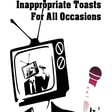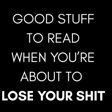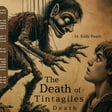Become a Creator today!Start creating today - Share your story with the world!
Start for free
00:00:00
00:00:01

Guest: Actor and Podcaster Hollywood Steve Huey
That's right, we landed an interview with the guy who does Yacht Rock...the podcast. Hollywood Steve Huey talks about his history with anxiety and his path to getting treatment for PTSD. He also regales us with tales of Yacht or Nacht, being in Pirates of the Caribbean, and body-oriented therapy. Just for funsies, we talk Zappa, Velicipastor, how comedic actors get the shaft at Oscar time, and why the PMRC is still pretty irritating today.
A transcript of this episode can be found here.
Transcript
Introduction and Themes
00:00:02
Speaker
You are listening to The Mentally Oddcast, where we talk with creatives about neurodivergence, trauma, addiction, and all the other things that impact and inform our art. Our goal is to show everyone that no matter what you're going through, you are not alone and you can make art about it.
00:00:34
Speaker
Hi
Who is Hollywood Steve Huey?
00:00:35
Speaker
friends, you are listening to The Mentally Oddcast, and I am Wednesday Leap Friday. We are brought to you by sometimes hilarious horror. Check us out on Ko-fi. Please. With us this week, we have Hollywood Steve Huey. And
Steve Huey's Career Highlights
00:00:50
Speaker
if you don't know who that is, he's the yacht rock guy.
00:00:53
Speaker
He has been a writer for the All Music Guide. He is obviously the one of the hosts of Yacht Rock. ah He's been on VH1's 100 Greatest Countdowns. You know, there's a whole bunch of those. um Plus, he's been on a bunch of other podcasts and he's writing a book. He appeared in the first Pirates of the Caribbean movie and he once found himself in a social setting with Sarah Silverman. So I am Jelly. Hi, Steve. Thanks for being here.
00:01:22
Speaker
Hi. Oh, hi. You've caught me being on your podcast. It's it's true. um That's my catchphrase from the web series. I see. For those who are unfamiliar. Well, as if as if anyone is unfamiliar.
00:01:40
Speaker
um I'm so glad we could do this. I've been wanting to get you on here for a while. Um,
First Horror Movie Experience
00:01:47
Speaker
and, uh, our first question is, uh, we always ask guests to tell us about the first horror movie they remember seeing. Oh boy. All right. So, uh, I went to elementary school in a little town in Louisiana called Eunice and, uh, Louisiana is not necessarily noted for its tip top educational system.
00:02:12
Speaker
And when I was in, I think this was in fifth grade, um there was this group of teachers. like There were three, fourth, fifth grade teachers. Everybody called them the Pointer Sisters because there were three of them and it was the early eighties. And they always hung out and gossiped together in the hallway while they left their classes unattended. And sometimes to make their jobs easier,
00:02:38
Speaker
they would, they would bring us all into the library and show us a movie on Fridays. And a lot of times they would, they would pick these like, it was kind of like Disney horror for a while. It was okay like Watcher in the Woods, Escape from Witch Mountain. Yeah, yeah, yeah. So it it was always like scary, but still for kids. So one week,
00:03:06
Speaker
they they get They got a movie called One Dark Knight. And it was a zombie movie. it's you know like The kids spend the night in the mausoleum and all this. right right And there's there's a bad there's a bad man who just died. And he was a master of Curlian energy. And he used Curlian energy to raise all the corpses in the mausoleum while the kids are in there doing whatever initiation. you know the you know The old zombie movie. right right And the it was a lot of really gory special effects makeup, like you know body parts falling off and shit. And this was not a kid's horror movie. And about maybe halfway through, the teachers started to figure this out. who But they didn't want to stop it, because that would be like admitting they made a mistake. Right.
00:04:01
Speaker
and We were all pretty disturbed by this point. I remember, like I think at one point, maybe more towards the climax where all the corpses are starting to pile up. My best friend at the time had to run out of the room and puke. Oh no. Wow. you It was it was a a really like that like level of disgusting zombie movie.
00:04:22
Speaker
and I went home terrified. I had to sleep at the door open for a few nights. ah just Oh my God. it was not It was not an ideal first experience with horror movies. And it it it played a large role in kind of putting me off like the gore end of horror movies, I think pretty much for good. Wow.
00:04:47
Speaker
that that That's quite a story that that it would happen at school. Yes, it happened it happened in the school library in fifth grade. Well, but I definitely remember seeing things that are not not so much the school library, but our town library. They would have like the kids movies on Saturday.
00:05:07
Speaker
and If you're like seven or eight, Bakshi's Lord of the Rings, is is is that's pretty rough, man. And the Hobbit, you know like that spider is scary. I don't care how old you are. A giant spider cocooning a man is terrifying. Stephen King knew that.
Sex Education Challenges
00:05:24
Speaker
um so i so I think for me, it was more like, the authority figures messed up yeah and betrayed our trust, which was a recurring theme in the educational system in Louisiana. Oh, I'll bet. This was just one of the most bizarre ah manifestations thereof.
00:05:45
Speaker
Wow. Well, i mean i'm you know I'm a sex writer, so I think of Louisiana as one of those like places where they fight against sex education, and then like and they wonder why everybody's pregnant.
00:05:58
Speaker
um i i We moved away before I got to the part where that would have been relevant, so I i have no opinion, no firsthand experience with with Sex Ed in Louisiana myself. Well, I don't think anybody does because they don't really have it.
00:06:18
Speaker
So dude,
Pirates of the Caribbean Experience
00:06:19
Speaker
you've been in a Disney movie and I saw in the news now that if you have Disney Plus, that basically means Disney can kill you and they won't go to trial for it. So what does that mean to you, Anne? Right, because you say that you assign all the waiver agreements and stuff. Right? They apparently apply across every Disney enterprise there is. And the next thing you know, you're a human centipede.
00:06:40
Speaker
So seriously, how scary is that? i I, you know, I'm not, so I'm not a lawyer. I never read the agreements I'm signing. No, no, my act about me. So I don't, I don't know what I signed when I agreed to, to be an extra in the first Pirates of the Caribbean movie. You can see me, you can see me, you can see me real, real tiny in the background in one scene. It's where Jeffrey rushes or they're, they're going, they're going on board Jeffrey rushes pirate ship and I'm in the background there.
00:07:15
Speaker
And I'm in such a- You have like a red thing on your head, right? Yeah, like a reddish purplish pinkish thing on my head. And I got a lot of dirt on my face because I'm a filthy pirate. And I looked so much like myself that when I got the DVD and brought it home for Christmas to show the family, I had to walk up to this, I had to freeze frame the screen and zoom in and then walk up to the TV and point at myself so that my mom recognized me.
00:07:44
Speaker
Wow, was that's you.
00:07:49
Speaker
um But I have have heard actually that Jeffrey Rush is one of those guys that hangs out with the the crew and the extras and stuff. did Did you get to have any interaction with him? Yeah, I i didn't personally, but there was um I remember there was at least one or two times where he like got dinner for everybody or something like that. I think I think there were some people who got a chance to just go like go get pictures with him. I forget whether it was in pirate makeup or not. and It was like 20 years ago. That's it's all leading the loss to the mists of time at this point. But yeah, I do remember him like being a, he was a cool dude.
00:08:29
Speaker
Right on, right
Gifted Children and Expectations
00:08:30
Speaker
on. So like in addition to being an actor, you went through school being one of those gifted and talented kids. Yes. But i mean like unless you're really rich or you're your parents are like super driven and connected, that's pretty much a recipe for disappointment, right? It's like setting you up for something totally unrealistic. Oh, yeah, yeah, yeah. cause like you know it's growing up you absorb all these messages like like oh you can do whatever you want you can be whatever you want in life and then you get older and it turns out that there are certain things you can't be if you want to get paid to make a living uh whether your interests run that way or not and then uh yeah like you were saying it's also um there are there are economic factors that play into whether or not you reach your
00:09:22
Speaker
quote-unquote potential whatever it is your potential actually is and You know if if you're not the ah if you're not the networking type, which I have a hunch a lot of gifted and talented people are not um There's a limit, you know, there's kind of a limit to how far you can rise on your own natural ability because you're gonna run into a lot of people who don't want your natural ability to outshine their lack of natural ability and they're not going to let you rise to that level because you make them look bad and then they get fired or demoted or whatever the fuck.
00:10:04
Speaker
you know it's it's it's it there's There's a lot more luck of the draw involved than I think anybody in the gifted and talented and you know educational portion of the the system wants to admit Yeah, I think it also, there seems to be some some crossover with autism. And
Undiagnosed Autism in Adults
00:10:25
Speaker
I'm just saying like colloquially, I've talked to a lot of adults who were never diagnosed with autism, but who seem to pretty clearly have it. like I'm pretty sure like all the all the pieces fit, but we didn't know. Right, yeah.
00:10:40
Speaker
And you know, sort of how um if you're able to sit still and and do your work, no one really notices or cares if anything else is going on with you because there's 30 other kids in your class and they got to deal with the troublemakers so that everybody else can learn. Right. And you seem to be doing fine for the most part. Right. Right. That's the thing. You you seem to be doing fine, which means you are not disruptive in this environment.
00:11:05
Speaker
because man, boy, was I not fine. you know Just speaking from I was emphatically not fine in a lot of very visible ways. And even now when I talk to people about it, they'll say, oh yeah, that is true. That was going on. like Yeah, I fucking know it was.
00:11:23
Speaker
um So I know also that you live with anxiety and I would think that trying to function in an environment where you really need to sell yourself all the time, that that would just compound that. How's that going?
00:11:43
Speaker
Um,
Journey with PTSD and Therapy
00:11:44
Speaker
not great. ah I, um, so, um, I'll backtrack just a ah bit there and and say like, I, so ah there's, there's some, uh, as the British soccer announcers would say, there's a bit of controversy online about, uh, what exactly gifted and talented means.
00:12:10
Speaker
And some people place it under the larger umbrella of neurodivergence. And some people don't because they want they there's like what what neurodivergence means can vary among, you know, schools of thought. um Some people just kind of use it to mean any kind of ah my term is brain weirdo. And, and some people want it to mean like the more you know the the The stuff that makes it harder to function in everyday life, like you know the the the more autistic side of autism or you know the the the level of ADHD where you have trouble holding down jobs, etc. I tend to adopt the the larger umbrella interpretation because
00:12:58
Speaker
i you know I think that you know from what I have read, I have certain traits in common with autism and what used to be called Asperger's but is now no longer a diagnosis. right I have certain traits in common with ADHD.
00:13:13
Speaker
which is now finally confirmed to run in my family, but I'm not sure that I have enough of either of those to qualify for a diagnosis in either of those. So I just kind of say gifted and talented with, you know, bits of this, bits of that. It's kind of its own, I just say I'm my own flavor of weirdo stew.
00:13:37
Speaker
You know, it's it's it's just like a different mix of ingredients that is, you know, I certainly wouldn't say it's debilitating, but it comes with its own set of problems and issues. um They're just not as severe as what I think, you know, some people are going for with this tag. um So in terms of ah in terms of selling myself,
00:14:03
Speaker
um
00:14:07
Speaker
So there's a, um, so, okay. So I've been in therapy for six years and counting now and that was pretty much since I was diagnosed with PTSD. um And there's so I, when I first got therapy for that, it didn't take because it was very um cognitive oriented and like, you know, traditional talk based therapy. Okay. And that didn't work. um Because as, as we all know, the body keeps the score. And
00:14:44
Speaker
I was not in touch with my body at all being you know the kind of nerd who lives entirely in his head and is sort of like ah you know i'm ah a walking life support system for what amounts to a brain in a jar.
00:14:59
Speaker
and So I didn't really, I just lived with this for a while, and I was an anxious person beforehand, but once you once you get the PTSD, it kind of takes every, in in addition to all the problems that causes, it also takes every preexisting issue you have and cranks it up to 11, spinal tap style. So I just,
00:15:26
Speaker
um I just lived with it for a long time. And the levels of anxiety I had. um
00:15:38
Speaker
I what I found is that anxiety a lot of times is rooted in unexpressed emotions, like the bottled up stuff that you don't want to let out. And I've i've learned since was part of therapy that I so it's Real, real, real, real, real quick theory. um i I read a book called Waking the Tiger by Peter Levine. This was before um The Body Keeps the Score was ever published.
00:16:10
Speaker
And it had a more body-based theory of PTSD about how it's rooted in our fight or flight mechanisms. And so you get fight, flight, and freeze. Those are the three main responses. They've added fawn since then, but the main ones that occur in nature for escaping predators are fight, flight, and freeze. And all of those have an emotion associated with them. um Fight has obviously anger.
00:16:37
Speaker
ah Or if your PTSD level that gets cranked up to rage, right? Flight has fear or under PTSD gets cranked up to terror And the third the third one freeze is a little trickier um But that tends to be associated with shame and the response being Withdrawal like you kind of go and hide and that's what I was in like the biggest state I was in a lot of the time was you know, freeze state, wanting to withdraw, stuck in a, you know, shame spirals. And I mean, that's kind of what I did professionally is I just sort of withdrew and, you know, didn't pursue things as ardently as as I probably would have otherwise.
The Courage of Seeking Therapy
00:17:28
Speaker
Not that I really knew what to do, but, you know, I wasn't really exploring
00:17:34
Speaker
You know, I wasn't really trying anything. I wasn't really it it sounds like risking mistakes. It presented as depression. The whole like, well... Yes, it presented as depression, but it ran deeper than that in hindsight.
00:17:48
Speaker
Wow. But yeah, it was, you know, it was a lot of like... Yeah, I probably should have been on meds. Well, and that's something that like a lot of people tell themselves, oh, it's not that serious. I can just get through it. It's not, you know, it's not important enough to get treatment for. And I just, I, like, as much as I understand and empathize with people who have that mindset, I'm here to say, fuck that. It's bullshit. If you are not feeling right and not you, you, but like the general you,
00:18:21
Speaker
If yeah you're having a hard time, you if you're not, if you're not feeling right, if you see yourself taking out your stuff on other people, get some help. It's never a failure. I am aghast that we still have people running around the world that think that it's weak to get therapy. Like no man hiding from your bullshit behind a facade of like anger or annoyance or withdrawal or booze or whatever the hell you're doing.
00:18:49
Speaker
That is cowardly. Getting in there and facing shit, even when you have to think of shit like, wow, I was a really bad person. I treated my first wife bad, or I was not a good parent, or I didn't have good parents, or like whatever is going on with you, a lot of that stuff is hard to face, and it does require some bravery and some strength to to do it. But ignoring it,
00:19:13
Speaker
doesn't just hurt you, it like hurts everyone who cares about you, eventually. you know yeah Eventually, yeah. but you know It takes longer if you're just turning it in inward against yourself. yeah um But you know with with um with shame being the emotion associated with withdrawal, you know it's it makes that that is the thing that really makes it hard to convince yourself that you even deserve help in the first place. Yep, yep, yep. You're right. and you know until i until i got into Until I got into the proper kind of therapy for me, I could not even identify the emotion of shame. It's something I realized had gone back a long time.
00:20:00
Speaker
and um
00:20:04
Speaker
you know I developed all these um you know wonderfully effective defense mechanisms against ever feeling it and had to learn how to feel it. I had to build bridges that were never built in the first place, I guess. and once i you know It's one of those things where once I learned to identify it in myself, I started seeing it all over the place.
00:20:26
Speaker
um and
00:20:30
Speaker
Well, I think what we're getting at is that it's the kind of condition that works against getting help. You know, the condition is is literally telling you that it is not worthwhile. It's not worth your time. It's not going to help. When do things ever get better? And, you know, and then there's also, right. Well, and a lot of people, i suck to especially people that have been untreated for a long time,
00:20:55
Speaker
have been told, Oh, you're just trying to get attention. Oh, you just want everyone to feel sorry for you. You're just making excuses. And once you internalize those voices, you literally, I mean, people will berate themselves for even considering getting therapy, which is is so sad. Yes, it's so sad. And I've seen that in certain people I know who are like, they really need therapy. Yeah, yeah. Like, Yeah, but they'll they'll completely discount their own feelings because they've been trained for so long to ignore them or that they don't matter or aren't important. I remember what I was going to say earlier. um I learned the term alexithymia, which is the inability to identify your own emotions. And that can tend to run particularly strong in neurodivergent types.
00:21:49
Speaker
And so that was a big part of therapy, was me learning not just how to feel my feelings, but how to identify what the hell they were in the first place, because I couldn't do that. That was not part of my skill set. It's hard, and especially for for boys, because sometimes boys are outright taught not to show their feelings. Girls get to get to cry and are not typically berated for crying. ah Boys are not.
00:22:18
Speaker
you know and and if you teach a person that the only thing that they can express is anger, well, what are they going to focus on? That. Yes, exactly. and I couldn't even express anger because i was like you know in high school, I was literally the 100-pound weakling from the old Charles Atlas bodybuilding ads. so If I expressed anger at how I was being treated, what am I going to do but like give give somebody who's like twice my size the green light to get physically violent?
00:22:51
Speaker
So I bottled up. i yeah i bottle I also bottled up the only emotion men are allowed to express too. which didn't I'm still untangling all of that. i'm still um I'm still learning how to let little bits of anger out, pressure cooker style, so that I don't blow up the kitchen eventually. Right.
00:23:17
Speaker
Well, and I mean, it's a challenge, you know, it's a huge challenge. And I think people who are not especially introspective often dismiss how big that challenge is. Oh, oh, you're going to go on a retreat and get in touch with your emotion? Yeah, bitch, maybe I am. You're going to let your inner child cry.
00:23:34
Speaker
a Yeah, you know what, dude? Your dad hates you. um
00:23:41
Speaker
That's why you're like this, Don Jr. Oh, damn it. I keep saying I'm going to go through an episode and not bring up Don Jr. and I i don't think I've managed it yet. Speaking of douche bags though, what is Yacht Rock?
00:23:56
Speaker
what because
00:24:01
Speaker
Excellent segue. We are laughing.
00:24:09
Speaker
a but But seriously though, you're you're highly devoted to it. What is it? What an excellent and complex question that really can only truly be answered in book length in booklength form, but I'll give you the rundown. So
Origins of Yacht Rock
00:24:25
Speaker
in this web series that we did starting back in 2005 in the early days of YouTube, um we defined it pretty broadly. We just kind of said really smooth music from 1976 to 1984. And that leaves the door open to a lot of different interpretations, some of which are closer to what we meant than others. um But in hindsight, because this has been an enduring thing on the internet and it's a term that people use pretty widely now without necessarily even knowing that it came from our web series,
00:25:02
Speaker
um We've kind of refined the definition into something that is fairly specific, more specific than most people use the term. Most people use the term as like a vibe or a feeling or you know it's whatever seems to fit that idea. What we meant was It's a particular kind of mostly soft rock, like very smooth production. um But generally speaking, it has some undercurrent of black music, like specifically jazz, R and&B, that kind of an underpinning. And it tends to be the house sound of the LA session musicians seen from around that time period. So like the Toto guys who played on everybody else's records were a big
00:25:51
Speaker
you know, cross-pollinator influence on the sound. um And a lot of guys who played on Steely Dan records, like Steely Dan used all these these studio cats to flesh out their sound once they stopped touring. They just hired the cream of the crop so they could get the best musicians on all their different songs. And they had a cast of, of you know,
00:26:16
Speaker
Dozens that they would deploy on different songs like oh we need this guy for the blues number And we need this other guy for the jazz number and we need this drummer for this we need this drummer for this funkier thing And we need this bassist for you know on and on and on just super nerdy shit ah That's easy to get lost in if you're an obsessive about this sort of thing which most of us are and um So it's kind of like I would sum it up to to sum that up. I would say Yacht Rock is a metaphor. It's not literally generally songs about sailing. It's the metaphor is like this is like the cream of the crop top of the line. You're spending a lot of money to hire all the top session guys so that you can have an amazing sounding high value production record that you play on your expensive Hi-Fi stereo system.
00:27:11
Speaker
that you can afford because you're a rich Southern Californian who likes to sail on the ocean and drink the finest champagne, snort the finest cocaine. you know that's That's the idea. That's the metaphor. So there is douchebaggery afoot here. Oh, absolutely. the The audience for this music at the time, we imagined as like rich douchebags.
00:27:33
Speaker
um And ironically, all those records, there was so little demand for them that the price went way, way down, which meant that we could buy them in dollar vinyl bins at Amoeba Records in LA and like get cheap entertainment for ourselves. And that's where we started reading the album credits and figuring out, oh, all these guys are playing on each other's records. This was like a little, this was a whole little scene back in the day. right what I wonder what else was going on. I wonder what else i want wonder what other records these guys played on. and
00:28:05
Speaker
you know then eventually discogs.com came about you could just click on a name and see all the other records they played on find more yacht rock that way you can sort of do that with my former employer the all music guide as well but I think it's just easier on discogs right some reason yep but yeah the so yacht rock the sound is It's smooth music that's influenced by jazz and and or R and&B. And it's basically the sound of the steely dan the extended Steely Dan family tree. Wow, that is wild. So you're writing a book about this, right? Yes, we we identified like the major figures, like both ah musicians and like, you know, writer producers, kind of more behind the scenes guys. And we're kind of, we've we've been piecing together
00:28:57
Speaker
What were the major you know milestones in this stylistic evolution? And how can we use these main figures to trace how the sound evolved and define it as a sound and get people to you know recognize, oh, this is the sound. I can hear these common threads. This is what they meant. If they defined it better 20 years ago, maybe we wouldn't have had to have all these debates on various internet forums. ah Wow. So are you going to be doing interviews with anybody? um Yeah, we've done, I think, about 20 interviews or so with anybody we could get a hold of. like we don't hit We didn't have a lot of ah ah journalistic connections to get to some of these folks.
00:29:44
Speaker
um we We weren't able to talk to a lot of like the highest level guys, but like below that, like anybody who isn't still playing like you know the ah the oldies circuit, I guess you might call it, um people kind of below that line were mostly pretty eager to talk to us because you know I think they just took it like, oh, wow, people remember us. People want to know about what we did back then. That's fantastic. sure i'll talk to the I don't know who these guys are, but I'll talk to them.
00:30:15
Speaker
Yeah, well, I find that actually when I reach out to people involved with Night of the Living Dead, even though some of them are still industry people and some aren't, everybody is like, wow, you still care about that? Of course, let's talk about it. I have
Creative Impact and Self-Worth
00:30:29
Speaker
a semi lasting legacy. I made an impact on the world that might survive after I'm gone. Wow.
00:30:36
Speaker
Well, and I'll tell you, man, and you ask for the older I get. And I mean, you know, I didn't have kids or whatever. So I say I live in fear that I will have left nothing of value. I mean, I have a body of work, but, you know, literally dozens of readers are like keeping up with me. um No, I just you know, I don't want to I don't I'm one of those people that like everywhere I go, I'm scribbling my name on stuff because I want you know like
00:31:07
Speaker
witnessness was here like i was here i You should have stickers made. i should Make some stickers. Stick them all over the place. yeah i just ah you know and and i don't know i mean I'm sure there are lots of fascinating psychological reasons why I'm i'm desperate to be remembered. but um i wonder i mean you You must go through some of that yourself.
00:31:31
Speaker
because oh yeah I mean, you're you're a ah creative type and you have anxiety. So that that would have to include that, right? And I have no kids, so. It's, you know, like, what, okay, what am I going to do with this time that I have because I didn't have kids? um See, and that's a shame too, because you are so cute. Your jeans should totally be passed along. Thank you. Listen up, ladies. Jeans. yeah hey Hey, Los Angeles, get with the fucking program here. Oh my God. I recently, I left town for um just to go on a family vacation and
00:32:09
Speaker
The dating app I'm on that I, you know, whatever, I didn't want to do it, but i my social circles have shrunk too much after the pandemic. But I got almost as many likes on this dating app in the week I was out of town in this other city than I have in the months I've been on it in LA. Oh, I'm sure. and i Competition must be crazy out there.
00:32:33
Speaker
eight i have I don't even have any sense of it because I'm not looking at all the men's profiles. I do not know who my competition is. I am baffled. i did to know it's you know there There are more people who live in l LA County than in all but 12 states.
00:32:53
Speaker
Like that's how many people are here. And the idea that that there's nobody here that would be into me, it just doesn't ring true, but I just don't know how to find those people. Well, you're a needle in a haystack, dude, clearly. Yeah, i mean apparently. So, you know, you're going to have to stab someone in the foot, it sounds like.
00:33:16
Speaker
So, um, I am aware if we could get a little more serious for a second. Now you, You live with PTSD as the result of a specific incident and we don't need to go into like the the details of that, but- Yeah, we'll just call it the incident. Okay. um Now, first of all, I want to talk about your experience with getting the support that you needed after this traumatic event. We we did talk a little bit about why you waited, but like when when you decided to actually get treatment, was it readily available to you?
00:33:53
Speaker
um Well, okay, i was I would say at the time, that since The Body Keeps the Score was published in 2014, there's been, I think, a major broadening of What are some approaches we can try because PTSD was notoriously therapy resistant, ah you know, cognitive talk therapy. Yes. um Only a small percentage of sufferers actually respond to that. um So back when I was trying to get help, the stuff that was readily available was, you know, cognitive oriented talk therapy. And it didn't take.
00:34:35
Speaker
So it's not that it's not that help wasn't available. I could go online and look around for therapists who said that they specialized in PTSD, but they didn't They weren't up on a lot of the up-and-coming therapeutic techniques that have since been proven to be more effective. So I could get help, but it wasn't effective help because you know people didn't quite know what they were doing on a broad collective level yet. Well, even now, like EMDR is not nearly as widespread as it it should be.
00:35:11
Speaker
um Yeah, and but you know, I think I think it's more available to like for example veterans they're trying more stuff with veterans because You know there because it's so prevalent in that population. Yeah, the need is so great therapy resistant and you know, I'm sure a lot of the You know macho soldier types are very much the type to have bottled up their emotions their whole lives, which is a big Risk factor for developing it in the wake of a traumatic event. Well, I will say I hear a lot more Um, the, the, that culture is changing in the military and because there's been so much outright war and so many people that have, you know, whether we're calling it shell shock or battle fatigue, or we're just saying PTSD, people are more aware of it and they're aware of it as an illness, you know, in that you shouldn't, you should, I mean,
00:36:03
Speaker
you know It happened because of an event, but like you break your leg because of an event. You don't just call it a thing that happened and not get it treated. You you go and you get it taken care of so that it can heal properly. Right. it's not It didn't happen because you're a big pussy. yeah Exactly. Exactly. It happened because you're a human and you went through more than a human should go through. Yep.
00:36:28
Speaker
Yep. And and because humans tend to inherently compare ourselves to each other, even though we don't typically know everything that a person is going through, you make all these assumptions like everybody else seems to be doing, dealing with it fine. And that's why it's so important that people talk about things like this with their friends and their families. That's one of the best things about the internet because you can get together with people.
00:36:55
Speaker
that have had similar experiences, even though you'll probably never meet them. and that and and That, I think, coupled with the lack of availability for therapy, because i mean we know that there are a lot of people that need therapy. It's very difficult to get a therapist in some parts of the country. I imagine where you are, it it can be, certainly. it's i mean when i was When I first started to look around, well, okay, I'll i'll backtrack a little bit. so um I didn't actually get diagnosed with PTSD for like 12 years. And I finally got,
00:37:31
Speaker
um so I basically, i went to I went to a therapist for a different reason and ended up with a PTSD diagnosis. ah Can I ask how old you were when the incident occurred?
00:37:49
Speaker
That would have been ah early 30s. Okay. 31, 32 somewhere in there. Okay. So yeah, it it really ruined my 30s along with working night shift in the entertainment industry. Like that didn't help anything either. um But yeah, early 30s. So it was like, I was very much old enough to remember what things were like before the incident.
00:38:18
Speaker
um And I could compare and and recognize like yeah all these things are different than what they used to be and much worse. And I can remember when they were better, but I don't know how to get back there. So so yeah, i um i had I had gone to a therapist because um
00:38:48
Speaker
certain certain people who will remain nameless accused me of being autistic in kind of a mean way. And since I'm somebody who ah you know turns turns up turns his shame against himself, I was like, wow, I always felt like something is quote unquote wrong with me. Maybe I should go get this checked out.
00:39:16
Speaker
and Instead, the therapist was like, oh, you have I told her, like I have some symptoms of PTSD also, but I don't think I have enough like to qualify for a diagnosis. And then I ran through everything. Angie told me, oh, no, see, that thing you have there, that this actually counts for this category that you don't think you have. So yeah, you absolutely have PTSD.
00:39:40
Speaker
So I was kind of the opposite of the WebMD, you know, hypochondriac, where, you know, you go on the Internet and you think you've got all this stuff and you don't. I went on the Internet, didn't think I had this stuff, and it turned out I did. So sometimes you should actually go talk to somebody and see if you do qualify for a diagnosis.
00:40:02
Speaker
So anyway, at that point, um I'd read i hadd read the Peter Levine book, Waking the Tiger, which is the theoretical foundation for a type of body centered therapy called somatic experiencing. And I thought, I want to try that because that felt like that book felt like the owner's manual for my brain and body that I'd finally gotten to read.
00:40:25
Speaker
Like, why wasn't this issued to me at birth? And ah so that's the approach I adopted. And I thought, well, if this doesn't work, I'll go try EMDR because there are options now. um But I stuck with this and it's it's been a huge help.
00:40:42
Speaker
you know i've um I've made a lot of progress. I've gotten back to points that you know I never thought I'd get back to. um you know There's still work to be done, like I said before, especially with anger, but there are parts of me that feel, I would say, adequately healed.
00:41:06
Speaker
to where I can move on with my life and I can experience you know human feelings again that are not just numbness, rage and terror and shame. i can the The good stuff is coming back online, which you know if you're kind of repressing all of the bad stuff all the time, you're also repressing the good stuff at the same time.
00:41:29
Speaker
Right. Which is another truth of another truth I learned in therapy is if you want to feel good, you also have to be able to feel bad. Yep. Yep. Yeah, that's I mean, very, very unfortunate if you ask me. but Oh, it is. It is. And that's the thing about like, I'm bipolar. I have bipolar one. So I'm on mood stabilizers, but I still get plenty of like highs and lows. And that's You know, people say, Oh, that's, that's so amazing though, because you just, you know, you feel so great and you start all these new projects and like, yeah, but I mean, no, I think you might not finish them because then the lows hit. Well, yeah. And I mean, it, it.
00:42:14
Speaker
the extreme i mean extreme anything. It's like you know even with politics, you have the extreme right, but the extreme extreme left, which we never see, but we think we do. No, it's not it's not an actual political force in this country. No, no no it's like no. There's no actual communist movement trying to take over the country. Trust me, I went to some socialist meetings. it's it's There's barely even communists in the socialist meeting.
00:42:43
Speaker
And when they are, they're super annoying and nobody's going to follow them to power. It's not not a thing. ah So let me ask you what what words of wisdom you would have for men who have a traumatic event happen to them and they're they're reticent to get treatment for it. What would you say?
Managing Emotions Post-Trauma
00:43:06
Speaker
um I think the the biggest thing for me was just I didn't know how to manage my feelings to begin with. And when you have PTSD, and they get cranked up to 11. It feels like you're just constantly struggling to keep the lid on the pressure cooker, so that all the bad shit doesn't come exploding out of you. At the same time, you know, the the
00:43:31
Speaker
the the pressure cooker analogy where you've got to let a little bit of steam off at a time so the pressure cooker itself does not blow up the kitchen. um My therapist often uses the metaphor that it's like it ah keeping the lid on the pressure cooker takes up all of your energy too. So you have no energy for anything else. And my my therapist will use the analogy that it's like It's like having your car in park and your foot on the gas. You're spending all this energy to just not go anywhere. Like you're just staying, you're just staying right where you are. So I would say that if that's how, if that's how somebody is experiencing life after trauma, then the solution
00:44:21
Speaker
is you have to you basically you have to Learn how to manage your feeling you there's no way around learning to feel your feelings and It's not i you know, I don't think it's so much that you're gonna you're gonna go out to the woods and you're gonna get in touch with your feelings and you're gonna see in kumbaya around the campfire and you're gonna cry you fucking cry baby you're gonna cry it's not that's not what the therapy is about the therapy is about you know The therapy is about learning to let out a little bit at a time so the pressure cooker doesn't blow up. and like i think I think anybody who's experiencing that will know what the pressure cooker feels like. yeah so you know I think the biggest thing is the somatic experiencing therapy is specifically designed to take you in just a little bit and then take you back out.
00:45:19
Speaker
in just a little bit until it gets uncomfortable then it they take you back out so that you're learning you don't do it all at once you absolutely do not rip the lid off the pressure cooker all at once you learn to do it a little bit at a time just so that it's manageable and then you do it a little bit more and it's very gradual it's not jumping in at the deep end of the pool it's you know dipping your toes in the shallow end of the pool gradually getting used to the water getting a little bit farther in, a little bit farther in, just you know taking however long it takes. For some people it doesn't take that long because they're able to build those bridges to their feelings because they're already basically in touch with them. They just need to learn these specific feelings. For other people like me, it takes a lot longer because we don't have those bridges built to our feelings to begin with.
00:46:15
Speaker
ah Right, so like I said, six years and counting and I'm still not done. But yeah, well i mean is it's a process and it takes time for the for a lot of a lot of people. Yeah, I don't know if there's ever a done. I mean yeah i don't think there's a point that's done. You could have you know their goals and you want to like reach goals or whatever. but yeah yeah i mean i'm i' I have not yet reached the point where I'm like, okay, I don't need regular therapy anymore. ive I can basically manage myself. I'm not at that point yet. um Well, and I think it's interesting because like, I don't know if you know, you probably don't, but like Weight Watchers from the 70s, I was a fat girl, so I was on Weight Watchers constantly. And one of the things that happens when you lose all the weight,
00:47:03
Speaker
is that you never actually leave the program, but you can go to meetings with much less frequency, you know, and you'll get to a point where you go like every three months. And that's something that I don't think happens often with therapy, but it would be a really good way to go about it just to go in, even if you go in like for your annual mental health check of like, okay, seriously, what's going on? and Yeah, yeah like ah like an annual you know medical checkup. That would make sense. i think I think part of the problem is that therapists have busy schedules and they don't necessarily have a lot of room in them. I got lucky when I found my... third Oh, yeah. um
00:47:44
Speaker
So when I was looking for a therapist, Somatic Experiencing has an online directory of certified practitioners that you can go to. I believe i believe the website is traumahealing dot.org off the top of my head. But I was looking around for people in Los Angeles. And the first thing I did was I tried to get referrals and everyone I got referred to was not taking new clients. right right and So eventually um I just went on this website and I just started looking around for l LA and i found I found a guy who um not only had he himself experienced
00:48:26
Speaker
similar trauma in in in you know but what he called his big incident, but he also lived within walking distance of my job and was willing to see me after work.
00:48:38
Speaker
Oh, wow. That was that was such a huge part of the battle was just, yeah, you know, people will tell you like, oh, your job has to make allowances and your job has to do this and they've got to let you. Yeah. That's a that's not how it fucking works in practice. And you fucking know it. yeah Yep. Yep.
00:48:59
Speaker
So yeah, I just I was able to find somebody who was willing to see me outside of, you know, regular business hours. And I was then that person is still willing to see me like he makes time on weekends for a handful of clients who can't really get away during the week. um So I mean, that's That's huge. That was a huge part of me being able to access therapy is somebody was willing to not act like therapy is only for rich people who are idle all fucking day and can just get away whenever they want. Yep. Yes. So I want to talk about some of your acting stuff.
00:49:48
Speaker
Okay, we I mean one of my favorite things is when I am just watching TV as I normally would and someone I know pops up It's the best I'd love yeah, it is. Yeah, from I live in l LA. It's a great experience that I've had it's great You're very happy for that person and ya they're getting paid I hope like well I mean I probably saw that Starburst commercial twice before I was like wait a minute. I know that dude I What the hell? I was in a wig. Well, come on now. But the oh I think, honestly, I was also like, oh, I love Kristen Charles. She's so cute. Because, you know, shee's she's in there with you. And she's probably great in real life. Don't tell me if she's not. ah Yeah, she's in great.
00:50:37
Speaker
and this And that was like before everybody knew that she was Kristen Shaw. um She was, I think at the time she was kind of getting big on the New York standup scene. Well, yeah, I had actually seen her on Comedy Central. That's who I, that's how I knew she was. I want to say they played her on Women Allowed, which I think maybe 15 people watched because it was like Mo Gaffney and Mo Gaffney was like, I guess she probably still is. Mo Gaffney is one of those people that's like,
00:51:06
Speaker
85% just for feminists.
00:51:14
Speaker
Which is too bad because the Kathy and Mo show is hilarious. The stage play. I don't know if you've seen it, but I have not. I have not seen it. Unfortunately, it sounds good. I SM for it um with like other actresses when it likes, you know, was making the rounds and it is a hilarious show. And, uh,
00:51:32
Speaker
Yeah, so anyway, Mo Gaffney, but that's why I knew who Kristin Shaw was like when that commercial came out. I was like, oh, that's so great. But you're also um you a commentator on those VH1 lists where you just like gab about like movies and music and stuff.
00:51:50
Speaker
Yeah, i um so i got I got involved in that because DH1 did a countdown called the 40 most soft-sational soft rock songs yeah as it you know as a direct outgrowth of our Yacht Rock web series taking off online.
00:52:07
Speaker
And of course they had multiple of us on there. And I had the background of having written for all music. And, you know, I was pretty, I was pretty able to talk intelligently about a pretty wide variety of music. And at the time I was working as an interview transcriber on various reality shows. And so I got you know having that insight like I've got to transcribe every goddamn word these people are saying and they can't talk and I know exactly what's going to get edited out when they try to take this this interview sound bite and put it in the show
00:52:46
Speaker
And ah so I got fairly good at giving sound bites. Like I knew when I was rambling enough where I would say, okay, stop, let me let me take that one again. And then I deliver it in the form of an actual sentence. And so they kept asking me back because I could combine those two, you know, ah not all that common skill sets, I guess I would say.
00:53:13
Speaker
um And so yeah, I got to be on like, I don't know, five or six of those things back when VH1 was still doing original programming. I have no idea what's on that channel anymore. Oh, I haven't had i haven't had cable in some time.
00:53:27
Speaker
Oh, me neither. And that's true of a lot of people. Yeah. find You can find a lot of those things on YouTube now. I don't know if it's like real or not. but Yeah, I hate to say this. I am actually getting to the point where I'm going to pay for YouTube too just to have it without commercials because, man, I can't. Well, the thing is, I listen to a lot of like YouTube when I'm trying to sleep at night. And so if it goes from you know the the rain thing to the campfire thing that I'm using to sleep,
00:53:54
Speaker
And then right in the middle, I'll be like almost asleep in here. Donald Trump wants to blah, blah, blah. This election season. Like, oh my fucking God. Shut up. Like and so and. and That's why they do it. I know that's why they do it. They try to irritate me into giving them my money, and that's why I don't want to. It's like prime, just suddenly saying, you know what? Fuck you. We're going to give you commercials now unless you pay us more. Now that we've got you all hooked.
00:54:26
Speaker
Yeah, they're an evil company. And you know what? The first few years are free. the second The second few years are going to cost you. All right, ah Columbia House. But no, um the thing is that like Bezos could become a hero like on a Jurassic Park level if he would just put some money back into WAPO, turn them into a real frigging newspaper again, and then just give it to people to read.
00:54:52
Speaker
Yeah, but he's not going to do that because because it's a point of pride for these assholes that they don't pay taxes because that's punishing them for success in their minds. But I mean, that wouldn't even be like a tax thing. We're shaming them by making them pay taxes. he I mean, he would just take it as a great big write off and pay less taxes. You know, he'd actually be doing a community service instead of- He's better than us. If he wasn't so much better than us, why would he have so much money?
00:55:23
Speaker
Oh, right. I forgot. I'd forgotten. yeah You can quantify how much better rich people are than all the rest of us if you look at how much money they have. It's because they worked so hard, you see. Yeah, they would certainly like to think so. Well, and and and it's funny because I'm reminded of of the Grand Turf who has literally said people must agree with me because I have so much money from them.
00:55:51
Speaker
and ah I mean, it's like, first of all- You can quantify it. And and it's it's just sad because the thing is that she, because of where she lives in the world, got to do something that writers I know would kill to do, which is just say, I'm not going to work. I'm going to have the government support me while I write my book.
00:56:15
Speaker
like yeah um and then it And then it turned out that she kind of came from more money than was originally let on to begin with. Well, and there are some pretty striking similarities of things that she, I don't know if you know, there's a book. It's like a 1965, maybe called The Dark Arts.
00:56:34
Speaker
and It's about the dark arts. And she has clearly read it. And- Oh, yeah. Well- There's so many things in Harry Potter that are taken from other sources and you know kind of put together. But, you know, I mean, on the one hand, that's kind of what Star Wars was, is George Lucas taking all these different sources and kind of squishing them all together into this you know this new yeah combination. I mean, that's that's fair. that That is definitely a fair thing to say.
00:57:05
Speaker
When I was in fourth grade, my teacher read us a book called James and the Giant Peach. And I love that book. And you know yeah you know what happens in James and the Giant Peach?
00:57:16
Speaker
A little boy named James Henry Trotter, his parents are suddenly and horribly killed. And then he has to go live with his two mean aunts until one day a magical man tells him he's a very special boy and leads him on a magical adventure where he meets, you know, magic and does magic things. It goes off from there. But like James Henry Trotter versus Harry James Potter. Are are you kidding me?
00:57:46
Speaker
Are you joking? And and I'm not saying Roald Dahl was a pristine human and no one should steal from him, but come on now. Do do better, Robert Calebreadth. There's creative borrowing and then there's just kind of half-assed borrowing. I mean, I suppose is one could argue that that's an homage because it's so obvious.
00:58:10
Speaker
But I don't know that, I mean, people always seem surprised when I point that out. So it's not as well known as as one would think to be an homage. Maybe in in England it is. I don't know.
00:58:22
Speaker
and that's i would you know what i what What it's reminding me of is ah is how hip-hop uses sampling. Some of the some some uses of samples are very creative and and make it into a new thing. And some of it is just borrowing somebody else's hook because it's catchy and you can. And now it's your song and it's a big hit and you make money because you stole the right thing.
00:58:46
Speaker
Look, man, I don't know if I'm going to be able to have you back if you don't start stop a trash talk and vanilla ice, man. That is not OK. It's not OK. I was thinking more Puff Daddy, but you you have a point. Word to your own mother. OK, how about that?
00:59:01
Speaker
yeah
00:59:04
Speaker
So, you know, I want to I do want to talk some more about music with you because I know you're a great fan of King Crimson, which I assume to mean that you're a fan of art rock in general. which joe i i'm I'm there. i ah you know what i think i'm i do I do like King Crimson a lot. I think they're one of the most in consistently engaging prog rock bands. But I will say that you know we've we've known each other online for some time and I used the cover of In the Court of a crimson the Crimson King
00:59:38
Speaker
as my online avatar, but it wasn't necessarily because I loved King Crimson as much as that that particular cover of a man you know an elaborate painting of a man screaming in terror accurately reflected my mental state even even prior to the incident. Yeah, I wasn't going to say nothing. but
01:00:06
Speaker
But yeah, it's it's a it's a very ah that the the album cover is a very visually evocative portrait of paranoia and what the fuck is happening? ah So, yeah, that was ah that was my favorite online avatar for for a while. Well, yeah, it's like a rock and roll version of The Scream, really. I mean, yes. Yeah, absolutely. Yes. Yeah, it definitely evokes the same thing. Yes, absolutely.
01:00:36
Speaker
Brilliant insight. yeah Well, when it comes to insanity, I'm your gal. That's why I host the Mentally Oddcast. It's not called the Mentally Oddcast because we're all like boring and bland.
01:00:52
Speaker
yeah Bane Allen and Sippid. It's funny because i was I had this list of like musicians I was going to bring up and one of them is ah Zappa. because you know yeah yeah and i did i I finagled a way to get my ah my senior honors English thesis done on the subject of Frank Zappa. Beautiful. Yeah.
01:01:16
Speaker
He's so great. And plus, you know, I was exactly the right age to just be outraged by the PMRC and so was he. So for for younger listeners, the PMRC was a group started by Elgore's wife, Tipper, um and it was about labeling rock music and and other kinds of music that the young people were listening to so that adults would know whether or not it was appropriate for them. And the thing is that like, as an adult,
01:01:46
Speaker
ah There's no reason not to label music the way that we label like movies and TV and video games Like it's it's fine to say this has naughty words if you don't want your kids to have naughty words Don't show them this But we treated it like we were leading the French Revolution or some shit. like We were so mad. and i think i think I think at the time it was there was a looming specter of the government stepping in to regulate this. Yeah, that's that's true. It worked out to where you know they they kind of just went under the table and said to the labels, okay, can you guys please do this so that we don't you know so that we don't have to have a hand in it?
01:02:24
Speaker
Well, and the implication, I think, being that if there are labels, then that would lead eventually to kids not being able to buy the music that they want. Yeah. That it would lead to state run censorship. Right. And I'm not saying anyone should buy Two Live Crew, but if you want to, that's your business. Right. It's not particularly good music, but- I hate to quote Dennis Miller because I know he's a prick in real life, but He did happen to say on update at one point, it it really is a bad album.
01:02:57
Speaker
couldn Couldn't we have gone to the wall over Layla? yeah i remember Yeah, I do remember an SNL sketch um where Chris Rock was playing Luther Campbell from 2 Live Crew. and i think it was Oh, and everybody's pitching him? It was a McLaughlin group parody where it was the Sinatra group. And ah Phil Hartman as Frank Sinatra was leading the discussion being you know a prick like John McLaughlin.
01:03:25
Speaker
and ah Luther Campbell was on the panel and so was Sinead O'Connor who he was referring to a shine head O'Connor. What do you think? yeah Oh no, and At one point Chris Rock has Luther Campbell ah Frank Sinatra's belly. No, you got talent. You're you're a talented kid You go in places and like no, I don't have any talent. I really don't have any talent at all.
01:03:51
Speaker
and Once I got older and I recognized what made what how to differentiate good rapping from bad rapping, I was like, oh, yeah, he really doesn't have that much talent. well and It's interesting because like I was an adult before I realized that like you can like things as media even when you know they're not good. like I had a sense of that.
01:04:13
Speaker
like there are certain There are certain two-life crew lyrics and hooks that still pop into my brain from time to time just because I heard it in junior high like my formative years of adolescence. Yup. Well, but I mean, you know B movies. I know B movies are bad, but like H and I will watch any shark movie. like If there's a shark in it, we're going to give it a try and see if it's good. yeah Whether that shark is like floating around a cornfield or it's made of puppetry or like, I mean, there there are some audaciously bad shark movies happening these days. Well, have you seen Velocipaster? No, oh yeah I forgot about that one. I do remember hearing about that. We put on Velocipaster.
01:04:59
Speaker
totally cold no idea what was up just like the title alone like yep that's good we're in you know yeah priest he's gonna turn into a velociraptor I'm there guess what Aurelio Voltaire plays an exorcist in it and man I love Voltaire I can't help it I think he's just gothian yummy and great so I'm not familiar with his work Oh my God, what you are, you just don't know that he did it because um okay remember the claymation bumps that MTV used to have in the late 80s, early 90s? He made those. Yes. Oh, okay. and He also, um he did that song Brains that was on Billy and Mandy that used to be Grim and Evil. um Yeah, you you you definitely you definitely know his work you because the thing is,
01:05:46
Speaker
he He's he's more about the work than he is about like promoting himself, you know, because I mean, he's a creatives creative. But yeah, so he plays ah an exorcist in Velocipaster. Velocipaster is so audacious. I'm going to reveal one thing about it. There is a scene where there's supposed to be a car explosion.
01:06:07
Speaker
but apparently they could not afford a car explosion. So the scene is literally a shot of the street and a caption that says, FX, car explosion. And then it immediately cuts to a dude on the sidewalk, like jumping back and there's debris flying at him from from the car explosion that did not occur.
01:06:31
Speaker
is fair I mean, you should watch it just for that, even though I gave that away. know but they You know what they could have done is cut to one of those old silent movie cards. Right, right. says And the car explodes! Have the little piano music over it. ah you Why on earth not, right? I mean, there's...
01:06:55
Speaker
but There's a lot to be said about silent films and that's you know one of those mind-blowing internet things because when they first started having you know people talk in movies and they were called talkies. Talkies? That's absurd. That sounds so silly. Why would anyone do that? Bruh, they're called movies.
01:07:18
Speaker
They're not called soundies. Well, but that's the thing, like a movie is to a photograph, what a talkie is to a silent film. Because it's like, God damn it, words. Anemology should not piss me off this much, but sometimes it just does. I cannot help it. um was Was there anything that we wanted to talk about that we didn't talk about?
01:07:45
Speaker
ah
Writing Routine Insights
01:07:48
Speaker
Because there is a point, like which is probably about now, where I ask the guests if they have any questions for me. So if you have any questions for me, now is when you should ask it. Oh, OK. Why are you so cool?
01:08:04
Speaker
yeah um Oh, this is ah this is relevant to me because I'm in the middle of writing a book as a collaborative project which I do not recommend. Oh, I hear that first time as a first time book writing experience, ah because it's already hard enough. um Tell me about your writing routine like you're you've been You've been a fairly consistent producer of creative materials over the years, ah which which is inspiring to me because i have you know sometimes I have problems focusing enough to just you know put my nose to the grindstone. Tell me about your writing routine and how you're able to generate you know the work
01:08:50
Speaker
like I know what in some ways it just boils down to you just sit down and you do the work, but how do you how do you as a fellow brain weirdo manage to do that on a semi-consistent basis enough to actually finish stuff?
01:09:03
Speaker
um see I'm kind of embarrassed because I don't have a writing routine like at all. I'm much too much. I don't either. I'm way too inconsistent. Well, and I have lots of writers on the show and they will tell me, oh, I get up every morning and I write for, you know, three hours or every afternoon after work, I sit down for, you know, and and I just I i don't do like if I could do that, I'd probably have a day job still. I i don't. And I mean, honestly,
01:09:34
Speaker
and Unless I'm on a specific tight deadline, like I do set goals and deadlines for myself and say, I need to be this far by this date, or I will have considered myself falling behind. And then I start like berating and chastising myself for being behind. Yeah, I'm very good at that part. i I'm not as good at at yet doing the actual work on a consistent basis. And you know, one of the things that I try to do is um like,
01:10:03
Speaker
cut down on the berating and chastising and turn that into like, well, I could sit here being mad at myself for two hours, or I could sit the hell down and, and, you know, outline that. Cause the thing is that, especially when you're talking about fiction, you know, any kind of like creative pros that's not based on research, I feel like I have to be in the mood for it. Like I need some music. I probably want some caffeine.
01:10:30
Speaker
You know, I want to, I need to be like in the right head space. I need to be feeling okay, physically. And once all those things come together, it doesn't matter if it's my normal bedtime, I need to sit down and and do it then. You know, so, yeah and I mean, it's, it's like, there are a lot of little like tricks I play on myself to make sure I'm inspired, to make sure.
01:10:54
Speaker
You know, I'm, I'm sitting down and doing it, but I have never established a regular routine. Um, and I pretend that a regular routine would not be authentic, man. I'm real. I'm too real. i'm out the see of hands But, whoops, microphone fell, but yeah, I mean, the bottom line is, is no, I really don't, uh, I really don't have a routine.
01:11:21
Speaker
Because i like I find most of the time when I'm distracted, it's because I am more anxious about something else than I am about finishing this particular chunk of work. Right. Yep. I can understand that for sure.
01:11:38
Speaker
which you know when you work freelance in the entertainment industry and you have to pay rent in l LA, there's a lot to be anxious about. How how are you even doing that? I mean, that's one of the most expensive cities in the world, right? i Well, part of it is that my apartment is rent controlled, so I can basically never leave ah because i'll never get I'll never get this kind of a rate again unless there's some kind of horrible disaster that sends all the property values in the city plummeting.
01:12:07
Speaker
Okay, well, i you know what? I think it is time for the Mad Lib. Are you ready? I'm ready. Okay, and you know how these work, right? Yes. I give you the parts of speech, you give me the words, I read it. So let's see. One, two. Two verbs. Flutter and castigate. Very nice. ah And another verb, but this one ending in ing.
01:12:36
Speaker
Bloviating. Nice. I need a part of the body plural. Ears.
01:12:47
Speaker
And one, two, three adjectives. Shiny, uh, syrupy. Okay. One more. And wispy.
01:13:03
Speaker
All right, I need one, two, three plural nouns. Nope, four, four plural nouns. Four plural nouns. Eggs, antelopes,
01:13:22
Speaker
trumpets, hobos. All right, and three singular nouns. Bottle, pillow.
01:13:34
Speaker
One more. And battery. And one silly word. Onomatopoeia. Does that count? Yes, but fuck you for making me spell it. All right. This is called sleepwalking.
01:14:01
Speaker
All right, sleep-bloviating is a shiny phenomenon with a surprise that a surprising number of eggs experience. Usually, sleepwalkers climb out of their antelopes and begin to flutter with their ears tightly shut. I've never heard that before. ah Sometimes they castigate outdoors wearing only their syrupy pajamas. Ew.
01:14:28
Speaker
its And it's not uncommon for bottle walkers to raid the pillow and eat lots of trumpets. What's truly amazing is that they don't remember a wispy thing following the battery. They'll open the fridge and say, onomatopoeia, where did all the hobos go? They may never know. See, irreverent, irreverent. This sounds like AI.
01:14:59
Speaker
Yeah, it can't be it's funny.
01:15:04
Speaker
Well, see, that's the thing about comedy, though, is that like, and I always want to say this to actors, because, you know, like, you can pretend to be dramatic, you can pretend to be angry, you can act like you're in love, you you can't fake being funny, either you're funny or you're not funny.
01:15:24
Speaker
ah yup I was actually thinking about that because of Will Ferrell and I was watching it um you know ah Stranger Than Fiction, which I think is just a masterpiece. And that's a whole thing because you say like, oh, well, you know Will Ferrell's in all these stupid movies and then he's in a really good one. But like it's it's so condescending and dismissive to talk about Anchorman as if it's not a well-crafted film.
01:15:52
Speaker
Yes, you know, I left a lot of Anchorman. Yeah, funny. Well, I mean, comedy is always difficult because first of all, you're like eliciting an involuntary reaction pretty much in people as opposed to like when you go to a horror movie, you're going there to be scared. But yeah, I think I guess well, what Bill Murray talks about that a lot about just being sort of minimized because he does comedy and not really getting the props he deserves.
01:16:22
Speaker
Yeah, I was I was very disappointed when he lost the ah the best actor Oscar to Sean Penn, who basically I like I watched the Sean Penn movies is like, oh, he cries. Big fucking deal. Yeah. Well, yeah, Bill bill Murray. I mean, it was so sad how he went out in zombie land. Steve, thank you so much for being here. It was wonderful having you.
01:16:49
Speaker
Thank you for having me. May I plug my podcast before we before we before we take off, please? Yeah, we're going to have links in the descriptions, but yeah, plug away. Great. So I
Beyond Yacht Rock Podcast Promotion
01:17:00
Speaker
am currently I've been with with the fellow my fellow yacht rock web series ah mainstays. There's four of us. We started doing a podcast in 2016 called Beyond Yacht Rock, where we would come up with a new basis. We were known for making up a genre of the Internet liked.
01:17:18
Speaker
We made up a new genre every episode and then counted the top 10 songs in it down like, ah you know, Casey Kaysom style. Nice. and um We also what grew out of that was we would do so every once in a while we do an episode about a sub genre of yacht rock like like, oh, this is a southern yacht or yacht rock from New York, yacht York or whatever. And that that grew into people would ask us on Twitter, hey, is this song yacht rock? And so we started taking requests and we started doing
01:17:51
Speaker
Now we call them a yacht or a yacht. yeah we we We rate songs on the scientifically proven Yatsky scale from one to 100. And we tell you whether or not that song is yacht rock or neot rock. ah you can go to the You can go to our website, yacht or neot.com, N-Y-A-C-H-T dot com and see the see the results of our ratings and and and flip through this database of songs we've accumulated over the years.
01:18:20
Speaker
We're still doing that show. um We stopped doing Beyond Yacht Rock because it was a lot of work, and we started doing a different show called Billion Dollar Record Club, which instead of making up a whole new genre, we just listened to a record from front to back, and and we talk about it the entire time. And it turns out that's almost as much work as Beyond Yacht Rock, as now we have to figure out how to talk about a single artist for 45 minutes. Right.
01:18:47
Speaker
um but You know, the the exposure that we give these albums on our yeah astoundingly popular hit podcast, obviously then makes all of the physical copies worth a billion dollars, yes which sends the value of our own music collection soaring through the roof. And we finally get to see some money out of this whole deal. Nice. Wow. Anyway, join our Patreon if you enjoy our podcast. That's the only actual way we get money out of any of this.
01:19:18
Speaker
right yeah no i i hear that we're actually we left patreon um when they they did that fuckery with apple because yeah we did we debated whether to do that or not but we we weren't really active at the time and we also didn't have a better idea Well, it's rough, man. I mean, we went over to coffee, but we still haven't gotten back to where we were. Actually, we're still lower in terms of funders and amount. So, so yeah. So guys, find us over at coffee. When you support us there, you support sometimes hilarious horror and all of us here at The Mentally Podcast. So yeah, you know what? Thanks so much, Steve. We're going to see everybody next week. I mean, not both of us, but me, I'll be here next week.
01:20:00
Speaker
Thank you very much for having me. I enjoyed it quite a bit. Yay. Bye. Bye.














